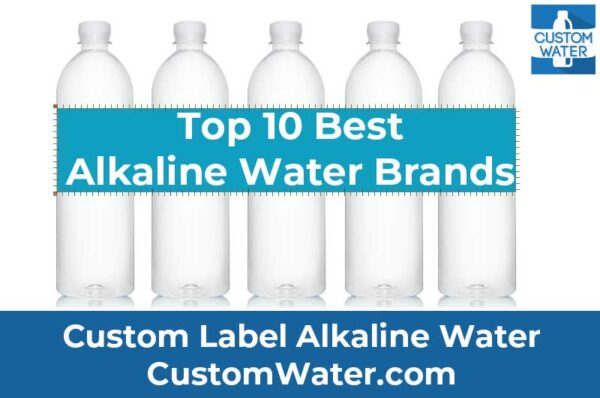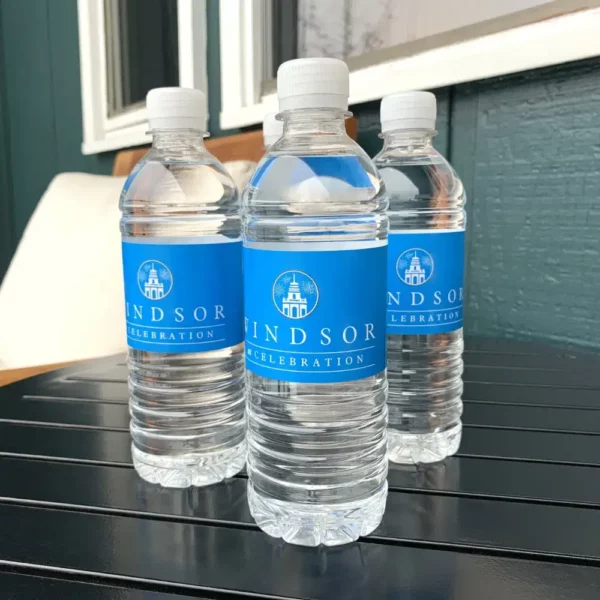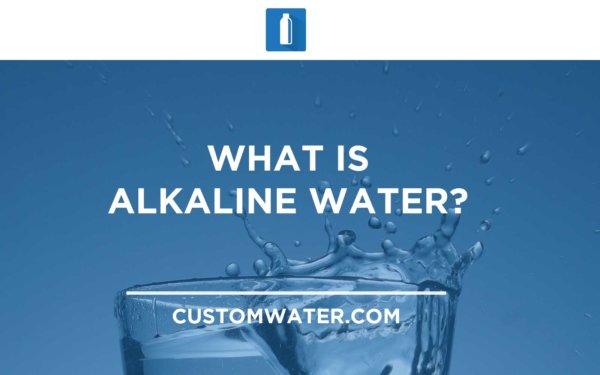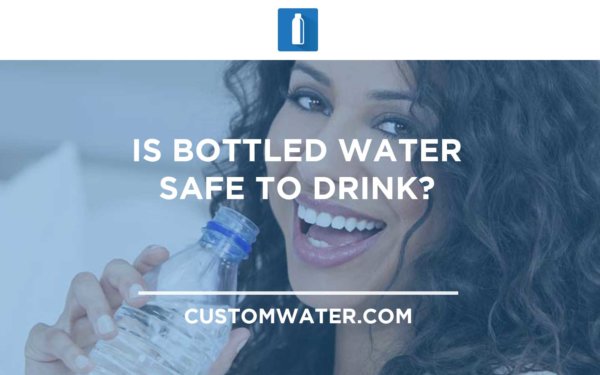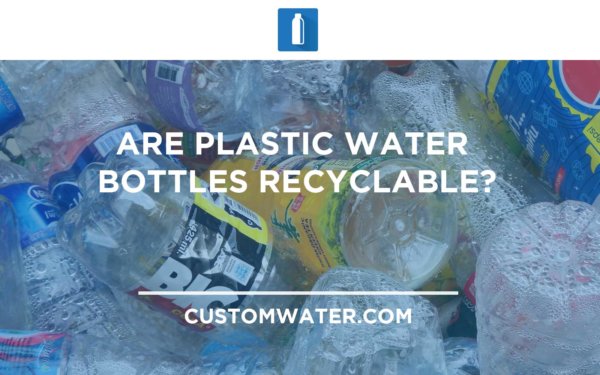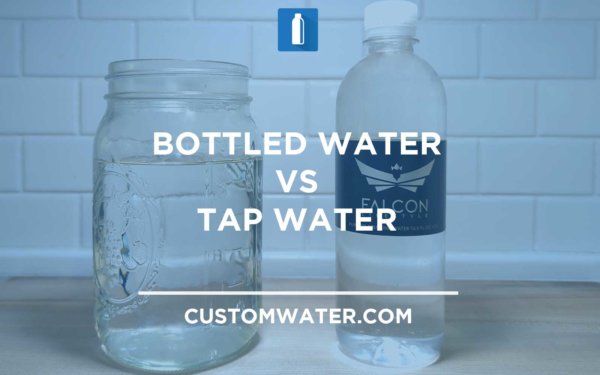Occasionally, people inquire about the safety of their plastic water bottles and whether they are BPA-free. Bisphenol A (BPA) is a toxic chemical found in polycarbonate plastics commonly used in baby bottles, plastic containers, food packaging, and water bottles, as well as in epoxy resin that lines metal cans and bottle tops, according to Mayo Clinic. BPA has been a cause for concern due to its potential health risks, including BPA’s ability to leach toxic chemicals into the contents of containers, potentially leading to health problems like breast cancer, birth defects, unwanted weight gain, and prostate cancer.
Fortunately, many popular water bottle brands, including those offering sparkling water and flavored water, have recognized these concerns. The bottled water industry as a whole has shifted to using BPA-free containers and BPA-free packaging, ensuring safer and more eco-friendly options for consumers. Some of the well-known BPA-free water bottle brands include CustomWater.com, Dasani water, Fiji water, JUST, Evian, Perrier, Core, and Nestle. To ensure your health and to answer the question, are bottled water BPA free, It’s essential to check product labels and verify that the plastic water bottle you choose is indeed bisphenols A-free.
What is Bottled Water?
Bottled water is simply purified drinking water that has been packaged in a sealed, portable container for easy consumption. It is a popular choice for many because it provides a convenient and safe way to stay hydrated when on the go. There are various types of bottled water, including natural spring water, sparkling water, flavored water, and just water, catering to different preferences for refreshing taste and hydration.
For instance, custom branded bottled water is popular among businesses, as it helps promote their bottled water brand and offers customers a refreshing taste option with their lowest labeled prices. Bottled water brand companies, such as CustomWater.com, provide nationwide bottling and shipping services, guaranteeing convenience and accessibility for clients seeking high-quality water products.
Water bottle can come in different bottle sizes and packaging materials, such as resilient plastics, stainless steel, aluminum or glass water bottles. With growing environmental concerns, many bottled water brands are now using eco-friendly alternatives like BPA-free plastic bottles, recycled plastic bottles (rPET), reusable aluminum cans, or plant-based materials for their purified water.
In recent years, we have noticed a surge in interest in BPA-free bottled water. BPA, or Bisphenol A, is a chemical used in the production of certain plastics, which has raised health concerns among consumers. As a result, many bottled water brands in the United States now offer BPA-free containers, ensuring a safer and healthier choice for their customers.
Overall, bottled drinking water has become a popular choice for individuals seeking an easy and convenient way to stay hydrated while reducing their exposure to potential contaminants found in tap water. As the market continues to evolve, we are confident that we will see even more environmentally friendly and health-conscious alternatives emerge.
Understanding BPA
BPA, or bisphenol A, is an industrial chemical that has been used in the production of certain plastics and resins since the 1950s. It is commonly found in polycarbonate plastics, which are often used in food containers that store food and beverages, such as reusable water bottles, metal products like canned foods or food cans.
As a knowledgeable individual, I am aware that exposure to BPA is a concern due to its potential effects on human health. Studies have linked BPA exposure to various health issues, including hormone disruption, reproduction problems caused by reducing healthy eggs, and even certain types of cancer.
To address the growing public concern, many manufacturers have started producing BPA-free bottled water. Identifying BPA-free bottled water can be done by checking the Resin Identification Code (RIC) located at the bottom of the water bottle. BPA-free bottled water will typically display codes 1, 2, or 5 within the recycling symbol. Code 7, on the other hand, indicates that the bottle may contain BPA.
To ensure that your drinking water is stored in a BPA-free container, we suggest taking these precautions:
- Look for the RIC number on the bottom of the bottle, ensuring it is either 1, 2, or 5.
- Purchase water bottles from reputable manufacturers (such as CustomWater.com) that have voluntarily removed BPA from their products.
In doing so, you are able to take a clear, neutral stance in assessing the potential risks of BPA exposure and take necessary steps to protect your health.
BPA in Bottled Water
As someone who’s concerned about the quality of the water I consume, I became aware of the presence of bisphenol A (BPA) in some bottled water products. BPA is an organic compound used in the production of certain plastic products, including water bottles. Studies have suggested that exposure to BPA may cause health problems, prompting me to reconsider my choice to drink bottled water that is BPA-free1.
To determine whether bottled water is made from BPA-free plastics, I looked for the Resin Identification Code (RIS) on the bottles. BPA-safe bottles will only use codes 1, 2, or 52. If the bottle I am checking has one of these codes, I am assured that it’s BPA-free. However, it’s worth noting that some bottles marked with recycle codes 3 or 7 may contain BPA1.
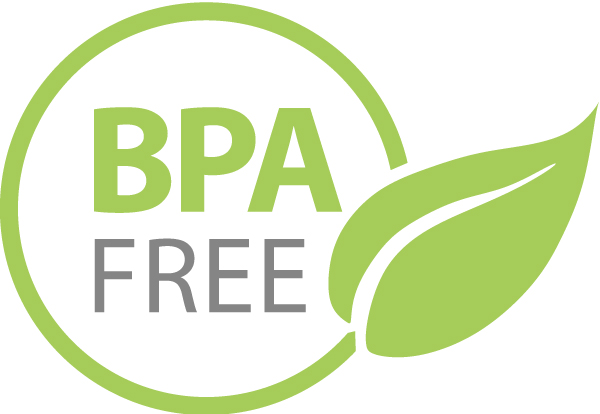
While most of the bottles I came across were indeed BPA-free, there’s a possibility that some may have BPA contamination. So, to be extra cautious, I make sure to thoroughly wash the bottles after purchase. Moreover, I avoid exposing plastic water bottles to heat, such as placing them in the microwave or dishwasher, because heat may cause BPA to leach into the drinking water1.
In my quest for safer water, I have discovered that many bottled water brands on the market today offer BPA-free options. Still, it’s essential to look for products specifically labeled as BPA-free to ensure the drinking water quality I’m consuming, whether it’s sourced from natural spring or enhanced with natural minerals, is safe from potential BPA exposure.
Footnotes
- https://www.uc.edu/news/articles/2021/04/uc-researchers-find-transient-bpa-in-what-are-considered-bpa-free-water-bottles.html ↩
Why Companies Choose BPA Free Bottling
Many major commercial brands are offering BPA-free bottled water, including Dasani, Fiji, JUST, Evian, Perrier, and Nestle Pure.
There are several reasons why companies are making the switch to BPA-free bottling. The primary reason is to protect the health and well-being of their customers. BPA has been linked to various health issues, including disruptions in hormone estrogen levels and neurological problems. By offering BPA-free plastic bottles, companies are reducing the potential risk of their consumers being exposed to these harmful chemicals.
Another crucial reason is the growing demand for environmentally-friendly products. BPA can leach into water and soil, causing damage to ecosystems and marine life. By using BPA-free businesses reduce their environmental impact and appeal to the increasing number of consumers who prefer sustainable products.
In addition to these substantial reasons, embracing BPA-free bottling can also offer companies a competitive edge in the market. With rising consumer awareness about BPA and its potential health risks, customers often seek out and choose products labeled as BPA-free. Brands that have replaced BPA with bisphenol S (BPS) in their packaging can, therefore, attract more health-conscious consumers and build a positive brand image.
In summary, companies choose BPA-free bottling for various reasons, including protecting consumer health, meeting consumer demand for sustainable products, gaining a competitive edge, and leveraging technological advancements in packaging materials. As a result, the trend toward BPA-free plastic bottle continues to grow, ultimately benefiting both businesses and consumers.
Health Risks Associated with BPA
Even though the U.S. Food and Drug Administration (FDA) has stated that BPA is safe at very low levels found in some foods [source], there is still a debate among environmental and health experts regarding the potential risks of BPA exposure. As a response to this concern, manufacturers have developed a range of BPA-free alternatives, which are now commonly used for water bottles.
When opting for a water bottle, we encourage you to to look for those labeled as BPA-free and contaminant free, as they reduce the risk of BPA leaching into the liquid source. Additionally, materials such as glass bottles, stainless steel, and polypropylene are considered safe alternatives to plastic water bottles containing BPA source. These options can help us make better choices for our health and the environment.
Frequently Asked Questions
What does BPA-free water bottle mean?
A BPA-free bottle means that the bottle does not contain bisphenol A (BPA), an industrial chemical found in some plastics and resins. BPA has been linked to various health problems, and many people now prefer to use BPA-free products to reduce exposure to it.
How can I determine if my bottled water is BPA-free?
To find out if your bottled water is BPA-free, I recommend checking the bottom of the bottle for a recycling symbol. If the symbol includes a number “7” inside, your bottle may contain BPA. Additionally, some bottles may have labels or markings that say “BPA Free.” If you’re unsure, you can also look up the bottled water brand online to verify whether they produce BPA-free. Rest assured, all products from CustomWater.com are BPA-free.
Are popular bottled water brands like Dasani and Poland Spring BPA-free?
Major bottled water brands such as Dasani and Poland Spring have made efforts to reduce BPA in their products. However, I recommend checking their packaging or visiting their websites to verify the current BPA-free status for their individual products.
Is it safe to drink from BPA-free water bottles?
Yes, if you drink purified water from glass bottles or BPA-free bottles, it is generally considered safe. The absence of BPA in glass bottles or BPA-free water bottles reduces the potential risk of adverse health effects associated with exposure to the chemical. However, it’s crucial to ensure you’re using a high-quality BPA-free bottles to avoid other potential contaminants or issues.
Can BPA be found in all types of bottled water?
BPA can be found in some types of bottled water, particularly those packaged in plastic containers like baby bottles made from polycarbonate plastics or epoxy resins. However, many companies now produce BPA-free bottled water to address consumer concerns. Glass bottles and bottles made from other types of plastic, such as PET, are generally BPA-free. However, I recommend verifying the BPA-free status of each bottled water brand you consider.
Are wholesale BPA-free water bottles available for purchase?
Yes, numerous manufacturers and suppliers offer wholesale BPA-free bottled water purchases. These wholesale options can be an excellent choice for businesses, events, or other situations where a large quantity of BPA-free bottled water is required. It’s essential to research and work with reputable suppliers to ensure the quality and safety of the BPA-free bottle sizes you purchase.

